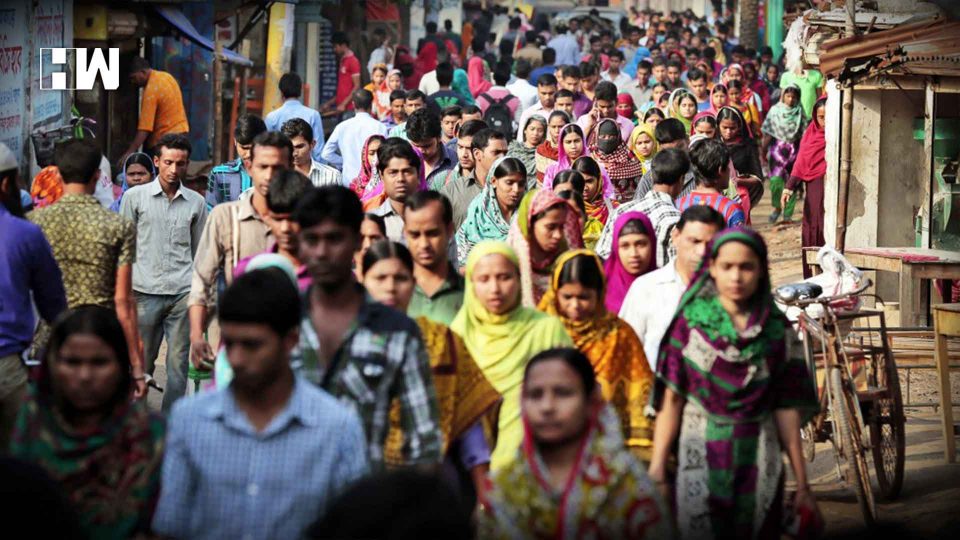If the govt. the claim of 2 crore Bangladeshi residing in India is considered then, in the last five years, the Indian government has not even deported 1% of them.
The release of final NRC draft in Assam has wrecked mayhem in the north-eastern state. As many as 40 Lakh people have been rendered homeless as their names did not appear in the draft list. The fear of being denied citizenship of one’s own country owing to the loopholes in the implementation of NRC has gripped the Bengali Muslims in Assam. On the other hand, the local Assamese population has welcomed the NRC update which is the long-standing demand of the activists and organizations. The entire aim of the NRC is to determine the Indian citizenship of individuals while picking out the illegal Bangladeshi immigrants. While whether the NRC will serve the purpose is a different question altogether, it is also equally important to look back whether the Indian state has been effective in cracking down on illegal migration from Bangladesh?
Back in November 2016, Union Minister of States for Home Affairs Kiren Rijiju told Rajya Sabha that there where there was around 2 crore Bangladeshi immigrants staying illegally in India. “There are reports of Bangladeshi nationals having entered the country without valid travel documents,” he told Rajya Sabha in a written reply to a question from Rajya Sabha MP Jharna Das Baidya. However, the Indian government so far lacks any official data on exact numbers of Bangladeshis illegally residing in India. Rijiju in his written answer further mentioned that as per available inputs, there are around 20 million (2 crores) illegal Bangladeshi migrants staying in India. However, some believe that the number can be more.

Incidentally, before 2016, it was only during UPA 1, the question on illegal immigration from Bangladesh surfaced in the Indian parliament. At that time, former Union Minister of State for Home Affairs Sriprakash Jaiswal had told the parliament that by 2004 estimated 1,20,53,950 illegal immigrants from Bangladesh reside in 17 states across India including the Union Territories. According to the data stated by him as many as 50 lakh, Bangladeshi were residing in bordering the north-eastern state of Assam while West Bengal had had the highest influx with 57 Lakh illegal Bangladeshi residing in the state. The UPA government, however, later withdrew the report.
Surprisingly, it is only after 12 years that the question of illegal immigration from Bangladesh surfaced in the Indian parliament.

As there is no official data available, the exact statistics about the Bangladeshi immigration in India is debatable. Since, 1971 Bangladesh Liberation War, Assam saw a steady and continuous influx of Bangladeshis in India. Most of them resided in Assam. The ever-increasing number of Bangladeshi immigrants has thus led to fear in the local community that they will be reduced to a minority in their own region. However, that is not the only fear attached to the illegal immigration problem. It is also feared that the illegal immigrants from Bangladesh can also pose a threat to India’s security and Integrity.
Though Bangladeshi immigration to Assam is more, the illegal immigrants are scattered in various states across the country. The regular reports on illegal Bangladeshis arrested from Mumbai- the financial capital of India are not new. In a report published on April 20, 2018, Hindustan Times reported that between January and April of 2018, 29 Bangladeshis have been arrested by the ATS for staying illegally in Maharashtra. Three of them are suspected of having connections to the Islamic extremist organization Ansarullah Bangla Team (ABT), which is believed to be responsible for the deaths of five prominent bloggers in Bangladesh. ABT is also said to be ‘inspired by’ al Qaeda and banned in Bangladesh.

“In August 2017, the Uttar Pradesh ATS arrested Abdullah al-Mamon, a member of ABT, in Muzaffarnagar. He told the ATS that his job was to organize fake identification documents, like Aadhar, for ABT members when they came across the border,” the report further mentions.
What is more shocking is that the Indian government’s shoddy job in identifying and deporting such illegal immigrants. In 2017, only 51 Bangladeshi immigrants were deported. In 2013, the number was 5234. Even if we calculate the total number of Bangladeshis deported in the last five years it doesn’t even reach up to 10,000. If the govt’s claim of 2 crore Bangladeshis residing in India is true then in the last five years, the Indian government has not even deported 1% of them. However, over the years, the number of illegal Bangladeshis deported has reduced drastically.
While Assam seems to be the only state in India which is pushing for the ouster of illegal immigrants from Bangladesh, in reality, the number of Bangladeshi immigrants deported is minuscule. On 14-March-2018, Ministry of Home Affairs released a press note saying that there is no specific treaty or agreement with the Government of Bangladesh regarding repatriation of its citizens who have illegally entered into India.

On the other hand, the deportation process too is lengthy and faulty. For the deportation, first details of the suspected illegal migrants apprehended in India, are shared with the respective foreign Missions/Embassies through the Ministry of External Affairs for nationality verification. However, the illegal migrants are deported only after their nationality is confirmed and travel documents are issued by the respective Foreign Missions/Embassies. If any of the above is not verified, then the suspect stays in detention centres.
On the eve of NRC release, the government deported 52 Bangladeshis. However, this is not enough. There needs to be a concrete policy dealing with the detection and deportation. Even the existing policy should be pursued aggressively.
As an independent media platform, we do not take advertisements from governments and corporate houses. It is you, our readers, who have supported us on our journey to do honest and unbiased journalism. Please contribute, so that we can continue to do the same in future.

